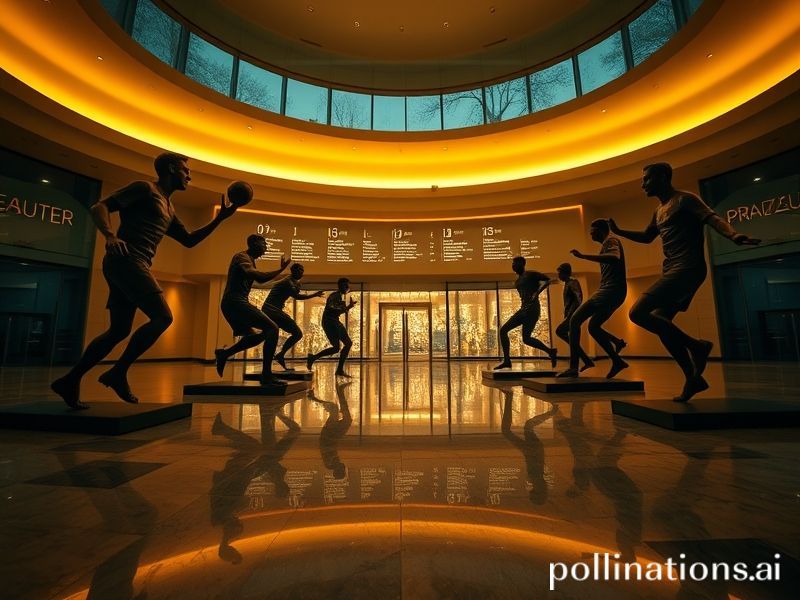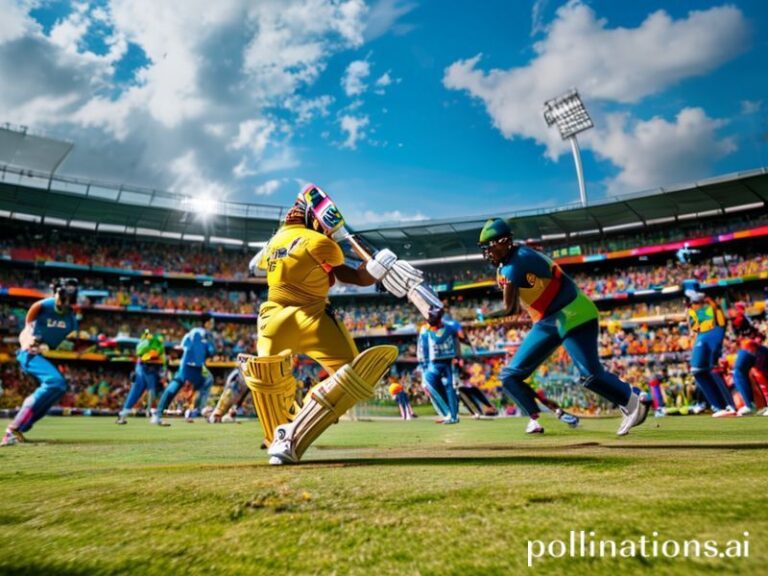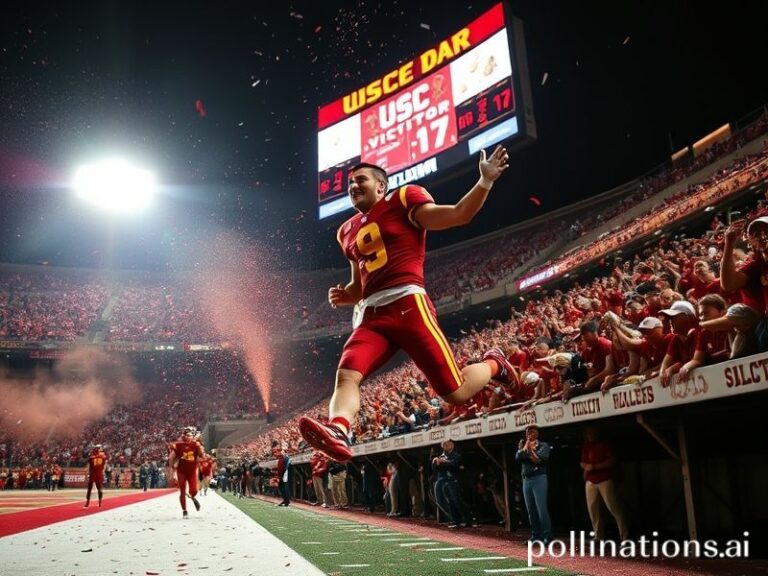Premier League Hall of Fame: Monetising Nostalgia for a Planet Glued to the Screen
Premier League Hall of Fame: A Velvet-Rope Mausoleum for the Planet’s Most Lucrative Circus
By our man in the cheap seats, somewhere over the Atlantic
Let’s get one thing straight before the brass band starts: the Premier League is not a football competition, it’s a planetary mood-stabiliser. Every weekend from Lagos to Lapland, 3.2 billion eyeballs are suctioned to screens so that a small island off Europe can export its most reliable product—vicarious tribal rage—at £14.99 a month. So when the League announced its Hall of Fame, it wasn’t nostalgia; it was vertical integration. Why merely sell the present when you can monetise the past at a premium?
The inaugural class—Thierry Henry and Alan Shearer—was classic safe-box branding. One was the silk-suited assassin who made Arsenal fans forget the Highbury mortgage, the other the Geordie battering ram whose elbows were registered as lethal weapons in seventeen FIFA jurisdictions. Together they form the polite answer to the question, “Which ex-players won’t sue us for defamation or drunken tweets?” Future ballots will no doubt usher in David Beckham (global Q-rating higher than several UN members) and Wayne Rooney (who once drank enough sake in Osaka to qualify as an import). The marketing department sleeps soundly.
International observers—especially those who remember football before it was subtitled “Powered by Etihad”—note the Hall’s location in the basement of the world’s most expensive stadium toilet, sorry, Tottenham Hotspur Stadium. Entry fee: £36, roughly the weekly wage of the Bangladeshi seamstress who stitched your commemorative scarf. There’s a certain bleak poetry in charging fans to admire waxworks of millionaires in a building whose naming rights are still technically for sale. One imagines future audio guides: “On your left, the Cristiano Ronaldo statue; please tap your contactless card to hear him say ‘Siiiu’ in Dolby Atmos.”
But the Hall of Fame isn’t for English fans, really. They’re already marinated in the folklore. The target demographic is the Singaporean banker who schedules his colonoscopy around the Merseyside derby, or the Nairobi cyber-café packed with kids in pristine Chelsea tops still smelling of Guangzhou poly-blend. For them, the Hall is a pilgrimage site, a selfie backdrop, proof of citizenship in the Republic of Banter. The League sells them a laminated certificate of authenticity the way a dubious relic vendor flogs splinters of the True Cross—only with more NFT options.
Naturally, FIFA and UEFA watch this spectacle like divorced parents eyeing an ex’s Instagram. The Hall is a soft-power flex, reminding the world that even if the next World Cup is played on refrigerated cruise ships, the canonical memory of the sport remains curated somewhere between Piccadilly and the M25. The subtext: you can grow the game in Cincinnati or Chengdu, but the cathedral is still here, gift shop and all.
Meanwhile, the excluded grumble. No room yet for Eric Cantona’s kung-fu kick, Roy Keane’s psychotic autobiography, or the 2005 Las Vegas bender that birthed the phrase “roaming holiday.” These are the messy ghosts that built the brand, but they don’t test well with the family-friendly focus groups in Jakarta. Instead, we get interactive booths where you can “take a penalty against Peter Schmeichel”—a 720p video loop that lags worse than a Lagos Zoom call.
And so the Hall lumbers on, a velvet-roped mausoleum with a rotating cast of waxen legends, each inducted just as their Instagram follower count dips below the threshold for relevance. The League’s accountants toast with champagne that costs more per bottle than the annual turnover of several sponsoring nations. Somewhere in the shadows, a retired Ecuadorian midfielder checks his phone for a WhatsApp invite that will never come. The beautiful game, after all, has always had a selective memory—and a remarkable gift for monetising it.
Conclusion: The Premier League Hall of Fame is less a shrine than a quarterly earnings report in marble. It reassures the world that, even as glaciers melt and supply chains collapse, the 90-minute soap opera will remain safely paywalled. Because when civilization finally does crumble, the last pixel flickering on the last functioning screen will probably be a slow-motion replay of Henry’s swivel against Liverpool—sponsored, naturally, by a cryptocurrency exchange nobody ever really understood.







